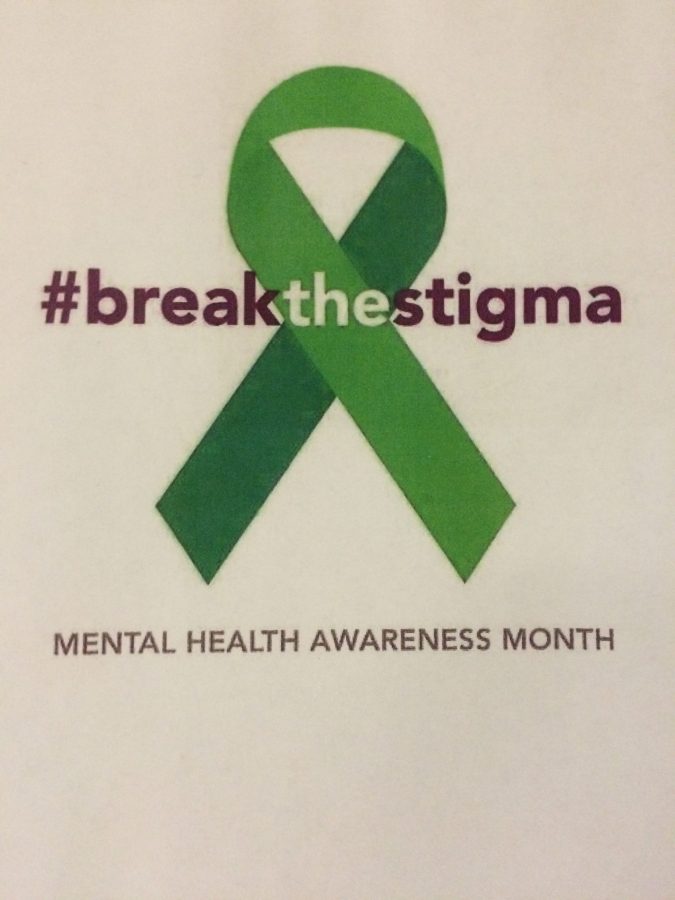EDITOR’S NOTE: This article talks about mental health issues. Due to the sensitive nature and to protect the identities of the students, names of students have been changed to alias names.
Lazy, selfish, ungrateful, downer, attention-seeking, unmotivated. These words are common adjectives used to stigmatize people who have depression. Depression can take many different forms, but what all forms have in common is they often aren’t caught in time and East kids are no exception.
Three lives. Three cases of depression. Three souls haunted by a feeling of hopelessness.
Jane Doe, a junior at South Lyon East, can be seen in the halls expressing her bubbly personality. What can’t be seen is her past.
Jane ended up in Saint Joseph’s hospital of Ann Arbor during the spring of her eighth grade year. She had been bullied unrelentingly, and turned to self harm. She questioned whether to live anymore, “When I ended up in the hospital [because of a suicide attempt], I had to get the proper medical treatment…”
Why did it take Jane almost ending her life for anyone to notice that she was depressed? The symptoms were all around her.
10 to 15 percent of teenagers have some symptoms of teen depression at any one time, and in the United States depression is the most common mental health disorder among teens and adults according to TeenHelp.com. Yet as students continue on with life, these symptoms are not noticed, or are they being ignored?
Jane claims that being noticed changed her life forever, “After that there was a social worker that stayed with me, and made sure I didn’t do anything. Then, I got a psych evaluation by one of the other social workers in the building. They evaluated me, and they decided I had to go into inpatient therapy; I then got transferred to another hospital. That was specifically a behavioral therapy hospital, so there their was a psychiatrist that was onsite and when I first got there I had a meeting with her. After asking questions she formally diagnosed me [with depression], and I got on meds.”
That day Jane got information that gave her answers, but also caused her panic.
“Crap… there is something kinda wrong with me,” she remembers thinking.
Jane was given medical answers, yet because of the stigma towards depression, she felt dismay.
Michael Friedman Ph.D and author of The Stigma of Mental Illness Is Making Us Sicker states, “Research suggests that the majority of people hold negative attitudes and stereotypes towards people with mental illness. From a young age children will refer to others as “crazy” or “weird”; these terms are used commonly throughout adulthood as well. Often the negative stereotypes involve perceptions that people with mental illness are dangerous. This perception is fueled by media stories that paint violent perpetrators as “mentally ill” without providing the context of the broad spectrum of mental illness. This bias is not limited to people who are either uninformed or disconnected from people with mental illness; in fact health care providers and even some mental health professionals hold these very same stereotypes.”
Jane still wrestles everyday with her depression, and she urges the public to be informed and aware.
“The symptoms of depression I would say very much depend on the person, but for me it’s a state of almost numbness… When I’m going through a hardcore depressive episode, I basically become a shell of a human. I zone out all the time, I have a hard time processing what’s going on, and I have a difficult time talking. On a regular day, I either feel hyper emotional or almost emotionless,” she describes.
Depression is something many teens face, and to be more informed here are some facts of what depression can look like. Symptoms of teen depression can take on many different forms each day.
According to mentalhealth.net., some of the signs that should be looked for would be:
- Feeling sad, anxious, empty, hopeless, helpless, worthless, guilty, or generally pessimistic.
- Feeling more irritable than normal.
- Not doing the things you used to enjoy because you have no interest and/or motivation.
- Feeling easily fatigued or generally lacking energy.
- Experiencing changes in your sleep and/or appetite.
- Having difficulty thinking, making decisions, concentrating, or remembering things.
- Having an increase in physical ailments with no medical reason or evidence as to why.
- Thinking of death or suicide
Jane has seen the public eye shy away from noticing these suffering bodies, “If you notice symptoms of it [depression] you should treat it like a broken arm, a legitimate medical disorder, instead of treating it like something that is just made up.”
“Depression is way more common than it seems. it affects a lot more people than it seems, and the symptoms are incredibly different for everyone. if you think you may be suffering from it, get help. It can snowball into something MUCH bigger than you can handle by yourself very quickly,” she reiterated.
There are websites, hotlines, and a lot of other resources that are easily accessible to you via the Internet. And, I can guarantee you can talk about how you’re feeling with your friends. They love and care for you, and I can promise you won’t regret it. Most importantly, you are not alone.”
Teendepression.org also urges staying connected and seeking help, “Untreated depression is the number one cause of suicide, the third leading cause of death among teenagers… 90 percent of suicide victims suffer from a mental illness, and suffering from depression can make a teenager as much as 12 times more likely to attempt suicide… Less than 33 percent of teens with depression get help, yet 80 percent of teens with depression can be successfully treated.”
Jane wants the public to talk about depression, and tear down the stigma. Jane believes that a community that is more aware is a community that can recognize the symptoms, and decrease the heart wrenching statistics.
John Doe, a senior at East, was diagnosed in 2014 with depression. A yearly checkup caused him to face honest truths and get answers that left him feeling understood.
“I went for my yearly physical at my doctors and they were required to ask you if you felt down or depressed or thoughts of taking your own life and I told them yes, and they had me fill out a form. My doctor talked to me about it and she wrote me a referral to go see a therapist who diagnosed me.”
Sometimes just a simple form can make all honesty flow. Why were the signs of depression in John’s life not noticed? Why did it take a questionnaire to show true honesty?
“This is definitely something that shouldn’t be taken lightly, and just because you don’t suffer from it doesn’t mean other people don’t,” states John.
Depression not only could cause negative effects in the moment, it can also cause negative effects in the future.
These statistics were taken from the TeenHelp.com:
- 30 percent of teens with depression also develop a substance abuse problem.
- Teenagers with depression are likely to have a smaller social circle and take advantage of fewer opportunities for education or careers.
- Depressed teens are more likely to have trouble at school and in jobs, and to struggle with relationships.
- Teens with untreated depression are more likely to engage in risky sexual behaviors, leading to higher rates of pregnancy and sexually transmitted diseases.
- Teens with depression seem to catch physical illnesses more often than other teens.
Jessica Doe, a previous senior at South Lyon East High School, could be seen in the halls giving out hugs and talking with her friends, yet also hid behind a mask of depression.
“I’d say depression feels a bit like drowning or being invisible. Everyone around you seems happy but you’re not and you can’t find a way to get out of the rut that is depression, ” she described.
Depression makes the most simplest of activities seem like mountains to climb. Though words like lazy, unmotivated, and selfish are thrown around at these students that are often suffering the most. These students are working everyday to just keep moving forward.
When school rolls around Jessica states, “I think going to school and socializing is a lot harder with depression, you find yourself wanting to stay quiet more rather than talk about the latest drama… it’s hard to concentrate in class and you forget about your homework, you over think the laughter or glances from across the room, you’re just altogether distracted.”
“Depression isn’t something to glorify or romanticize, it’s not beautiful it’s hard,” Jessica emphasized.
May is national Mental Health Month. At East there are awareness flyers posted and green ribbons available to show support.
If someone you know is affected or could be potentially affected with depression or any other mental illness, seek support from a trusted adult right away. As these three students point out, noticing instead of judging may make all the difference.








